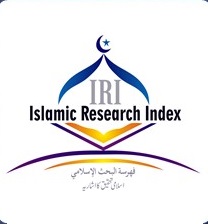Manipulation of Religion for Political Power and Control in Pakistan
DOI:
https://doi.org/10.58932/MULF0034Keywords:
Religion, politics, extremism, intolerance, violations, sectarianismAbstract
Pakistan's history has been marked by the exploitation of religion for political and social gains, leading to numerous challenges and conflicts. This phenomenon has been perpetuated by various political and religious groups, resulting in the manipulation of religion for power and control. The consequences of this adaptation have been far-reaching, contributing to sectarianism, extremism, intolerance, human rights violations and political instability. This article examines the way that political legitimization, social control, identity politics, political patronage and social engineering have been employed to exploit religion for political and social gain in Pakistan. This has led to the marginalization of minority groups, restrictions on women's rights and freedom of expression and the imposition of strict laws and regulations. The blurring of lines between religion and politics has resulted in religious leaders becoming political actors, further exacerbating the issue. It is essential to promote a more inclusive and equitable understanding of religion, separating it from political manipulation and emphasizing its role in promoting social justice, compassion and human rights.
References
Ahmad, I., & Aman, S. (2021). Women’s rights in Pakistan: A study of religious and alternate discourses regarding women’s participation in politics. Liberal Arts and Social Sciences International Journal (LASSIJ), 5(1), 123-138.
Atif, M., Anwar, U., & Ahmad, R. (2023). The Role of Religious Political Parties in Democracy-Reasons for Their Influence on the People of Pakistan. Journal of Education and Social Studies, 4(1), 136-148.
Dilawri, S., Salim, A., Ishfaq, H., & Saleem, M. (2014). Searching for security: The rising marginalization of religious communities in Pakistan.
Shaheed, F. (2010). Contested identities: Gendered politics, gendered religion in Pakistan. Third World Quarterly, 31(6), 851-867.
Gabol, I. (2016). Religious parties denounce law protecting women from abuse as' un-Islamic'. Dawn, March, 16.
Napitupulu, A. S. M., Wijaya, A. D. A. S., & Syamsuddin, N. (2023). The Affirmation of Pakistan's Islamic Identity: An Analysis of the Relevance of Fundamentalism in the Modern World. Indonesian Journal of Conflict and Peace Research, 1(1), 24-31.
Saleem, S. (2006). Impact of religious extremism on women in Pakistan.
WISCOMP, Foundation for Universal Responsibility of His Holiness the Dalai Lama.
Tauqeer, S. (2019). Feminism and the Practical vs Legal State of Women in Pakistan. RSIL L. Rev., 11.
Zafar, Z., Irfan, M. S., & Ali, M. M. (2023). Analysing the role of religion in political structure of Pakistan. ISSRA Papers, 15(1), 13-24.
Zafar, Z., & Javaid, U. (1960). Religion and Politics in Pakistan: A Historical Analysis of Islamization. Science (SAGE), 332, 101.
Downloads
Published
How to Cite
Issue
Section
License
Copyright (c) 2024 South Asian Journal of Religion and Philosophy (SAJRP)

This work is licensed under a Creative Commons Attribution-NonCommercial 4.0 International License.









